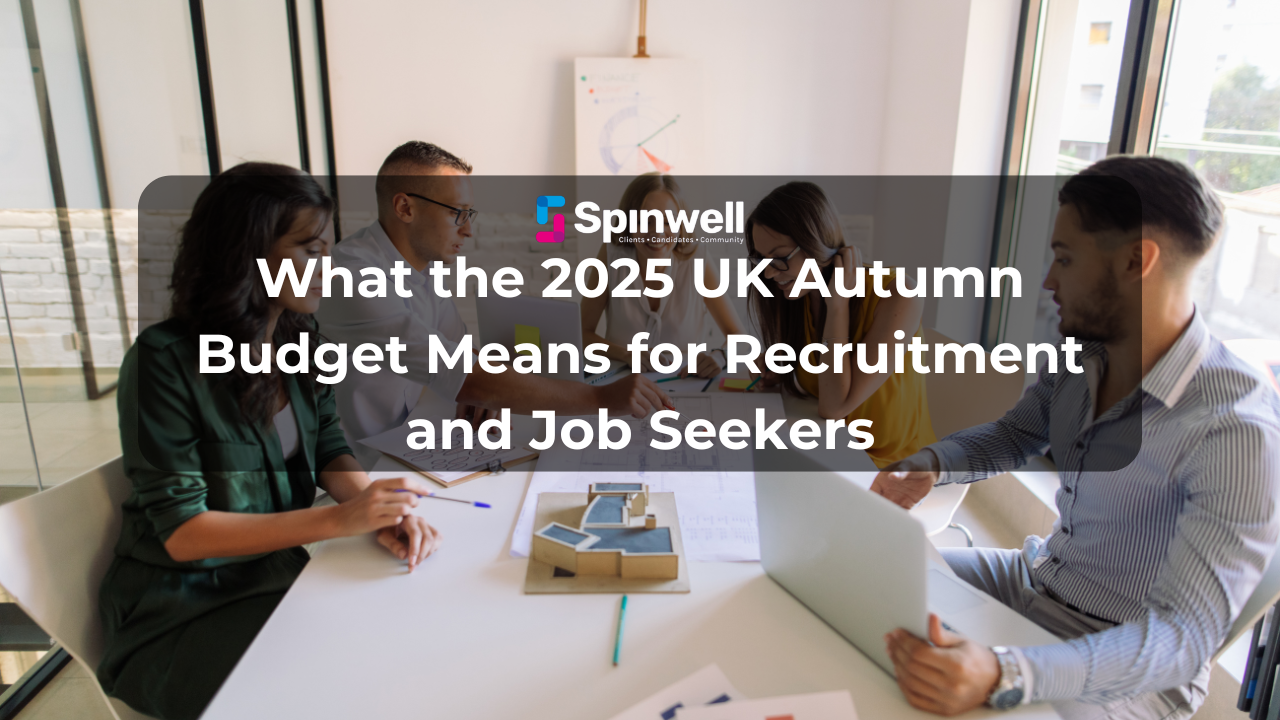
 The recently unveiled 2025 Autumn Budget has stirred up a wave of reaction across business and HR circles — and for job seekers and recruiters, the implications are significant. From rising labour costs to changing employer behaviours, here’s a breakdown of what the Budget might mean for hiring, retention, and career prospects in the months ahead.
The recently unveiled 2025 Autumn Budget has stirred up a wave of reaction across business and HR circles — and for job seekers and recruiters, the implications are significant. From rising labour costs to changing employer behaviours, here’s a breakdown of what the Budget might mean for hiring, retention, and career prospects in the months ahead.
Key Budget Changes Affecting Recruitment
Minimum Wage and Living Wage Increase
-
The Budget confirmed another increase to the National Living Wage (NLW). From April 2026, the hourly rate for workers aged 21+ will rise to £12.71/hr.
-
Young adult workers (18–20) and apprentices will also see rises under the National Minimum Wage (NMW).
Impact: This is good news for lower-paid and entry-level workers — more take-home pay and potentially stronger retention. For employers (especially labour-intensive sectors like retail, hospitality, care), it raises wage bills, which may affect hiring volumes or shift employers towards automation / digitalisation.
Employer National Insurance & Employment Costs
-
From April 2025, employer National Insurance Contributions (NICs) have increased — with the rate rising to 15% while the threshold triggering contributions has dropped from £9,100 to £5,000 annually.
-
While the increased Employment Allowance (from £5,000 to £10,500) eases some burden for smaller employers, the net result still increases the cost of hiring for many.
Impact: Higher employment costs make hiring riskier for employers — many may delay hiring, reduce recruitment volume or shift toward contract/temporary roles rather than permanent hires.
Business Uncertainty & Reduced Investment
Analysts argue the overall economic climate remains fragile. Some sectors have already signalled that escalating labour and compliance costs may suppress growth and hiring.
The 2025 Budget doesn’t include a strong, clear plan for boosting productivity and long-term jobs growth, according to leading HR voices.
What This Means for Job Seekers
1. Increased Demand for Skilled/Qualified Candidates
With tighter budgets and higher costs, employers are likely to prioritise experienced candidates who require less training — meaning fresh grads and junior applicants might face tougher competition.
2. Better Pay for Lower-Paid Roles — But Less Hiring Overall
If you’re in a minimum-wage job or entry-level role, the rise in NLW/NMW could boost earnings. However, the overall number of available jobs — especially in cost-sensitive industries — may shrink or become more contract-based.
3. Focus on Versatile, High-Impact Skills
Roles that add clear value — technical skills, productivity enhancements, managerial acumen — will be in demand. Soft skills and flexibility could also become more important as employers try to get more out of fewer resources.
4. Increased Use of Contract, Temporary or Freelance Work
Employers may steer clear of permanent hires due to cost, favouring contractors or fixed-term staff to maintain flexibility. This could open more “gig-style” or short-term roles.
Advice for Recruiters & Employers
-
Prioritise efficiency and value: With budgets tighter, focus on hiring skilled staff who can deliver quickly.
-
Lean on internal mobility and upskilling: Rather than hiring externally, consider training existing employees — investing in skills may be more cost-effective than onboarding new staff.
-
Communicate value beyond salary: With pay pressure high, perks like flexibility, training, career progression, purpose or hybrid/remote options can help attract/retain talent.
-
Prepare for selective hiring: Expect slower hiring cycles and more scrutiny on each hire — quality not quantity will be the norm.
What Job Seekers Should Do
-
Upskill where possible — your unique skills make you more attractive in a tight hiring market.
-
Be open to contract, freelance, or flexible work — this may become more common.
-
Highlight value — show employers how you help with productivity, efficiency, or cost-savings.
-
Stay adaptable — shifting labour market and economic headwinds require flexibility in expectations and approach.
Final Thoughts
The 2025 Autumn Budget lands at a challenging time for both employers and job seekers. While wage rises and stronger labour protections benefit many workers, the impact on hiring costs and business margins may lead to fewer vacancies and a more cautious labour market.
The winners will be:
-
Skilled, experienced candidates
-
Those with adaptable, in-demand skills
-
Employers and candidates who embrace flexibility, upskilling, and realistic expectations
For anyone involved in recruitment, hiring or job hunting — now more than ever, it’s about strategy, value, and flexibility.
Get in touch with us
NK






